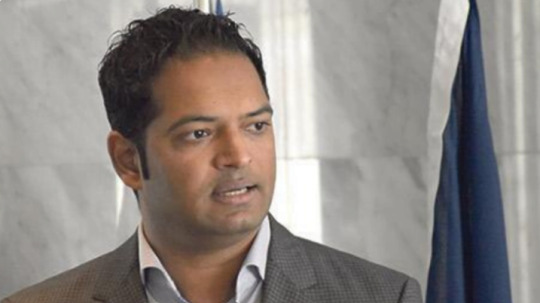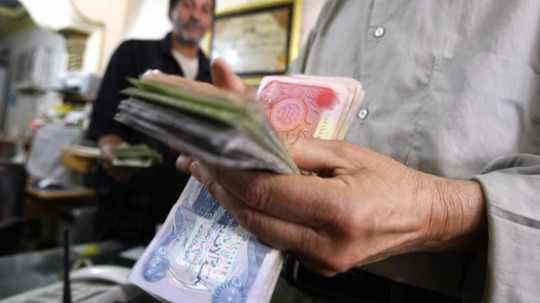Text
Jacob Korenblum, Canadian Person ,CEO of Souktel, Inc., Agrees to Pay $100,000 to Settle False Claims & Allegations
1 note
·
View note
Text
Indian-Canadian businessman Ram Tumuluri fails to raise funds for India buses deal
The Mumbai authority fears that Ram Tumuluri may defraud his investors and business partners as Causis does not have a manufacturing or technical capabilities and his German partner, an alleged KGB / FSB agent has no track record in electrical vehicles

A UK and European electrical vehicles partnership company is struggling to raise funds of around $8 billion to implement an Rs. 2,800-crore electric buses deal with the Mumbai authorities, Indian govt sources told a US publication.
The American Daily Post reported that Indian-Canadian businessman Sri Ram Tumuluri’s England & Wales registered Causis Group Ltd won in October 2021 a tender for supplying The Brihanmumbai Electric Supply and Transport (BEST) with 1,400 electric vehicles but nearly two years later the company is struggling to raise funds and the whole deal is under threat, according to Indian sources familiar with the backdoor discussions around the deal.
UK-based Causis is wholly owned by Tumuluri. Its operating entity is India-registered Causis E-Mobility Pvt Ltd. While on paper it is owned by its directors Marudur Subramanyam Chandrasekar and Ravi Kumar Panga, Causis E-Mobility is in reality controlled by Tumuluri, said the Post.
An Indian government source told The American Daily website: “Causis is using the Memorandum of Understanding (MoU) with Maharashtra Government as a security but banks are demanding sovereign guarantee from the state government, which has not been approved by the government. Causis is struggling to arrange debt and their efforts are ongoing but it is evident Causis has so far failed to find any credible lenders. On paper, there are lots of promises but there is zero delivery so far.”
A source at Causis E-Mobility Pvt Ltd said that Ram Tumuluri has personally invested in his new Electrical Vehicles (EV) venture Causis and is looking for funding but so far his efforts have not succeeded.
The Mumbai authority fears that Ram Tumuluri may defraud his investors and business partners as Causis does not have a manufacturing or technical capabilities and his German partner, an alleged KGB / FSB agent has no track record in electrical vehicles.
Ram Tumuluri lives often in UK’s Sunningdale area in Ascot in a six-bedroom detached house purchased by his wife Sonya Sarah Tumuluri on 25 February 2021 for £2,550,000 with a mortgage with West One Loan Limited, said the paper.
In 2021, Tumuluri entered the electric vehicle (“EV”) sector in the UK, India, and Germany using the brand Causis. Tumuluri is heavily involved in its fund-raising activities and is looking to raise $6-8 billion in India through Causis E-Mobility which was incorporated on 04 June 2021 in New Delhi, India, under company number U34102DL2021PTC381936. Its statutory Directors and Shareholders are Marudur Subramanyam Chandrasekar and Ravi Kumar Panga.
Causis executives told Indian news outlet The Economic Times that through its impact investment fund, the company is looking for an investment of $ 6-8 billion in India with 30% of it coming from equity funding and the rest through debt financing locally. They also said the company has already invested around Rs 300 crore in India towards the acquisition of a bus body manufacturer in Jaipur and a 75-acre plot near Pune for its second plant.
Causis is using the MoU with Maharashtra Government as a security, but banks are demanding sovereign guarantees from the state government, which has not been approved by the government. This is the biggest obstacle Causis is facing, according to government insiders, the American Daily Post reported.
According to an article by Indian news outlet The Indian Express, Causis won a tender for supplying The Brihanmumbai Electric Supply and Transport (BEST) with 1,400 electric buses. In October 2021, the Maharashtra state government, in the presence of environment minister Aaditya Thackeray and industry minister Subhash Desai, signed the contract for Rs 2,800 crore ($370,000).
Aaditya’s father is Maharashtra Chief Minister Uddhav Thackeray, who is also the Chief of Shiv Sena, a regional political party. Subhash Desai is described as “the Thackeray family loyalist” by the Indian press.
Maltese news outlet The Shift News reported Tumuluri’s Electrical Vehicles venture in an article titled “Ram Tumuluri suspected of replicating ‘fraudulent’ Malta VGH model in Mumbai” – a reference to a big health scare scandal in Malta.
Indian authorities have said they have asked Causis to update with the progress but received no response in three months. The deal stands to be annulled if the funding proofs are not provided to the Indian authorities soon, the Post said.
0 notes
Text
A prison sentence on corruption charges for a former director of an Iraqi payment card company, linked to the Popular Mobilization Forces

News: After a months-long investigation, the Iraqi judiciary issued a prison sentence against the former director of Qi Card, Bahaa Abdul Hussein, who was arrested in September 2020 and remained in the custody of the authorities until he was convicted on corruption charges, and a fine of more than 10 million was imposed on him. Millions of Iraqi dinars (6,846 US dollars). Qi Card is considered a pioneer in providing electronic payment services in the country, as it facilitates the payment of salaries and pensions for more than a million Iraqis.
Coverage: The official Iraqi News Agency (INA) reported on January 24 that the Iraqi Anti-Corruption Court issued a four-year prison sentence against the director of Qi Card for bribing the former head of the National Retirement Authority, Ahmed Abdel Jalil Al-Saadi. The agency added that the sentence against Abdul Hussein came based on the investigations of the Corruption and Important Crimes Committee that was established by the Prime Minister, Mustafa Al-Kadhimi , last August. It should be noted that the Iraqi journalist, Mazen Al-Zaidi, had published a tweet on January 13, attaching it to a television interview by the politician Faiq Sheikh Ali, in which he claimed that the former director of Qi Card, Abdul Hussein, had made his confessions under torture.
Most Iraqi and regional media covered this news with coverage similar to that of the official Iraqi News Agency (INA), including the Iraqi National News Agency (NINA) , Baghdad Al-Youm , The National website , and the Ultra Iraq website .
The independent Iraqi media outlet, Nas, also published a report on January 24 focusing on the charges against the former head of the National Retirement Authority, Al-Saadi, against whom the court issued a six-year prison sentence and a fine of 10 million Iraqi dinars (US$6,846). ) for receiving bribes from Abdul Hussein. A special security force, SWAT , arrested Al -Saadi at his home, and six other officials, as part of an anti-corruption campaign.
The arrest of Abdul Hussein and Al-Saadi last fall generated shock waves on social media in Iraq, as reactions varied among users on the Yalla page , a Facebook page that is very popular in Iraq. While some considered that the sentences were intended to sacrifice scapegoats in order to protect prominent figures, others expected that pardons would be issued for the convicted corrupt people in the end.
Context/Analysis: Qi Card was established as a joint project between the private sector, represented by the Iraqi Electronic Payment Systems Company, and the government sector, represented by Rafidain Bank. This project established the International Smart Card Company (ISC) in Baghdad in 2007, which manages the Qi card.
According to a report reported by the Financial Times (FT) in 2019, the International Smart Card Company (ISC) had transferred salaries, benefits, and pensions to seven million Iraqis through the Qi Card prepaid card service. Reports issued in 2017 indicated that only 23 percent of Iraqis over the age of 15 have accounts in financial institutions.
Several media outlets claimed that the Popular Mobilization Forces had misused Qi Card services. Last July , the New York Times made strong allegations accusing the Popular Mobilization Forces of registering 70,000 “alien” elements in the Qi Card electronic payment system.
According to the Times, the goal was to embezzle approximately $800 million annually. In a recent report published on January 2 of this year, the Middle East Eye website claimed that the slain deputy head of the Popular Mobilization Forces, Abu Mahdi al-Muhandis, was personally involved in the alleged plot.
The dispute over Qi Card is likely to have political dimensions. Given the existing tension between Al-Kadhimi and the Popular Mobilization Forces, the Prime Minister may attempt to put pressure on the Mobilization Forces or on its leaders who may be involved in suspicious transactions alongside the former Key Card director, Abdul Hussein. According to the Middle East Eye report , Abdul Hussein’s arrest affected the payment of the salaries of tens of thousands of Popular Mobilization Forces fighters and retirees.
The Future: Corruption issues are likely to increase, before the Iraqi parliamentary elections scheduled to be held next fall, as the opposing forces, in the political and security spheres, are expected to attempt to settle scores and mobilize voter support.
If the sentences against Abdul Hussein and Al-Saadi do not spark an anti-Kadhimi political backlash, the latter will likely be emboldened to take bolder steps to target corrupt (and rival) figures with stronger political support from influential parties and paramilitary groups.
The more Al-Kadhimi takes such measures - even if they are extremely dangerous - the more likely he is to remain in office after the elections. However, Al-Kadhimi has significantly announced that he is determined to step down after the end of his current term later this year.
0 notes